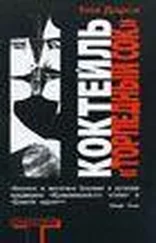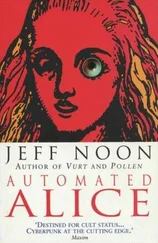Jeff Noon - Pixel Juice
Здесь есть возможность читать онлайн «Jeff Noon - Pixel Juice» весь текст электронной книги совершенно бесплатно (целиком полную версию без сокращений). В некоторых случаях можно слушать аудио, скачать через торрент в формате fb2 и присутствует краткое содержание. Год выпуска: 2000, ISBN: 2000, Издательство: Black Swan, Жанр: Киберпанк, Современная проза, на английском языке. Описание произведения, (предисловие) а так же отзывы посетителей доступны на портале библиотеки ЛибКат.
- Название:Pixel Juice
- Автор:
- Издательство:Black Swan
- Жанр:
- Год:2000
- ISBN:0-552-99937-7 / 978-0-552-99937-3
- Рейтинг книги:3 / 5. Голосов: 1
-
Избранное:Добавить в избранное
- Отзывы:
-
Ваша оценка:
- 60
- 1
- 2
- 3
- 4
- 5
Pixel Juice: краткое содержание, описание и аннотация
Предлагаем к чтению аннотацию, описание, краткое содержание или предисловие (зависит от того, что написал сам автор книги «Pixel Juice»). Если вы не нашли необходимую информацию о книге — напишите в комментариях, мы постараемся отыскать её.
Pixel Juice — читать онлайн бесплатно полную книгу (весь текст) целиком
Ниже представлен текст книги, разбитый по страницам. Система сохранения места последней прочитанной страницы, позволяет с удобством читать онлайн бесплатно книгу «Pixel Juice», без необходимости каждый раз заново искать на чём Вы остановились. Поставьте закладку, и сможете в любой момент перейти на страницу, на которой закончили чтение.
Интервал:
Закладка:
You can guess why Tom was just about the only grown-up I talked to much. He had some crazy stories, and the brilliant games, and all that. And sometimes he would take me on his stealing trips, and teach me some of the arcane secrets of breaking and entering. Other times I would help out adding new bits to the machines, that was the most fun. But mostly I liked him just because he was the only one who ever talked about getting away from the town's clutches.
It was all just talk, but what the hell.
Oris had come out of the Factory. Whenever anything comes out of the Factory, first of all we have to decide what it is, what it does. This is the Town Hall's job. Sometimes they can't ever find a reason for it. But with Oris, it was fairly obvious what was going on, what with those legs, and the eye, and the computing engine. That's why the library got to use it. Until Tom stole it off them, of course. I helped him do that. By then the robot was on its last five-and-a-half legs anyway. Nobody missed it.
If you've ever seen the Crawl library, you'll know why they really didn't need an Automated Retrieval of Information System. There just wasn't enough information to retrieve, that was it. The place was a shack, really. Small and grotty, made out of planks, and mostly falling down. And so small, they couldn't have more than a hundred books in there, surely. Tom claimed that one book was enough to last a lifetime anyway, especially if you read it in the special way.
'What do you mean?' I'd ask him. 'What special way?'
'One word a day,' he'd answer.
'One word a day, lasts a lifetime? I don't believe you.'
'Check it out, girl. Put up some money.'
Now Tom Sharpsaw had a whole bunch of books on the shelves at the Vanishing Palace. More than the library had, that was for sure. The thing about the books that Tom kept: they were all written by himself. So we made this bet. I said that reading a book one word a day wouldn't take a lifetime, and he claimed it would. And so certain was he of winning, he let me choose whichever book to test the theory on. So I looked over them all: unfinished novels, engineering manuals, dictionaries of illusions, a censored atlas of the world, collections of poetry. Of course I chose the atlas, after all wasn't it all maps?
'There's lots of words in there,' said Tom.
'Like where?'
'Place names. Here, in the back. Thousands of them.'
'OK. I'll choose a poetry book.'
The book I picked out was a tattered paperback affair, a slim self-published volume called The Silvering. The author's name was Zenith O'Clock, which was one of the names Tom sometimes used for his writing. I flicked through the book; there were only thirty pages, twenty-six of which contained poems. Actually, now I looked at it, it wasn't so much a bunch of poems, more a very short story, set out with only a few words on each page, and lots of empty space.
'Do we read all the book?' I asked. 'The bits at the front, the contents and all that? Or do we just read the poems themselves?'
'Just the poems,' Tom answered.
'What's wrong? Don't you want to win, or something?'
'Just read the words, one at a time.'
'OK, I'll read. You see how many days it takes me.'
'Begin.'
'OK… here goes.'
And then I read out the word 'Possibly…'
You can see the problem, can't you? I'm telling you this story about the poetry book, just so you'll get an inkling of how Tom Sharpsaw's brain worked. Because I couldn't read out the next word, which was 'you', until the next day. And then each day after that I had to go round to the Vanishing Palace, just to read the next word. I got as far as reading out loud the passage, 'Possibly, you could say that one evening, late in the future, all the mirrors in the world…', which took all of seventeen days, and then I just couldn't be bothered any more.
To this day I'm still not sure if I lost that bet, or if I won it. Certainly, no money changed hands.
So then, Tom Sharpsaw had a brain a bit like the roads around here; he kind of met you halfway through a thought, but from another direction, if you see what I mean. The best way to describe it is to tell about the machines he made. He built these strange contraptions out of anything he could get his hands on really, including some products from the Factory. Stuff that other people saw absolutely no use for, he would combine into these bewildering games. I call them games; there wasn't any obvious way of playing them. You just had to find your way around them, work out what they were for, try to unravel their mystery as you went along. I think the object of the game was to find out how to play it.
And I guess the Factory works in just the same way. Sometimes we would go and stand alongside the outer fence, just to watch if anything was being produced. It never was, of course. Nobody ever saw the Factory actually deliver anything; the products would just turn up, left on the special platform that was the only part of the whole compound we could ever touch. Every other part of the fence was electrified. Robot guards circled the spaces between the fences.
The Factory protected itself.
There it stood in the distance, nested within the three fences and the moat; the centre of attraction around which the town of Grawl slowly travelled. A giant of a place it was, made out of crumbling red brick, on which the words hercules mill 1897 stood out in dirty white lettering. They told us in school that people had worked inside it once, a long, long time ago, before all the processes were automated. At the end, so they say, only one person was needed to operate the whole building. I was very excited when I learned that this last supervisor was a woman, I suppose because it's the kind of thing I could imagine myself doing, wandering alone around a cavernous factory, totally in charge of an army of robots. It was the kind of fantasy I had, when I was a young girl, and I would always see myself as wearing a long, flowing ballgown in these dreams, I don't know why. I would be dancing with a very handsome male robot.
Nobody knows what happened to that last supervisor. She must have died, years ago, centuries ago.
And now, at night, the Factory's lights come on, one by one, and the whole town listens to the constant purring of the secret engines. Tom reckons it just got caught in its own flow diagram one day, and had no more need of the human hand. But still, it produces, following the twisted instructions…
The best thing that ever happened was when I actually got to see the Factory make a delivery. No, that's not true. What it was, I was once the person who found a product on the delivery platform. I didn't see it being put there, nobody sees that, I just came down to the Factory early one morning and there it was, this… thing. It was a flat circular object, about thirty centimetres in diameter and made out of plastic. And this plastic was etched with a spiral groove on both sides of the disc. A paper label had been glued to the central area, and this was covered With writing. Reading this, I found out that the object was called Pixelkids Come Out Tonight, and had been made by somebody called Janus Fontaine. I didn't know what it was, but instead of taking it over to the Town Hall to be registered, I showed it to Tom at the Vanishing Palace. But he was just as puzzled as I was, and said that he would have to study it.
I kind of forgot all about the product for a while, because I never heard anything more about it from Tom. But then, about six months later, there it was, the thing I'd found, now a part of the Shark Magnet machine. Tom had set it up so the disc spun around, and the groove in it came into contact with a tiny shard of diamond he had prised out of a stolen necklace. And it made a noise! The spinning disc made a noise, a type of music I think, but nothing like I'd ever heard before.
Читать дальшеИнтервал:
Закладка:
Похожие книги на «Pixel Juice»
Представляем Вашему вниманию похожие книги на «Pixel Juice» списком для выбора. Мы отобрали схожую по названию и смыслу литературу в надежде предоставить читателям больше вариантов отыскать новые, интересные, ещё непрочитанные произведения.
Обсуждение, отзывы о книге «Pixel Juice» и просто собственные мнения читателей. Оставьте ваши комментарии, напишите, что Вы думаете о произведении, его смысле или главных героях. Укажите что конкретно понравилось, а что нет, и почему Вы так считаете.











